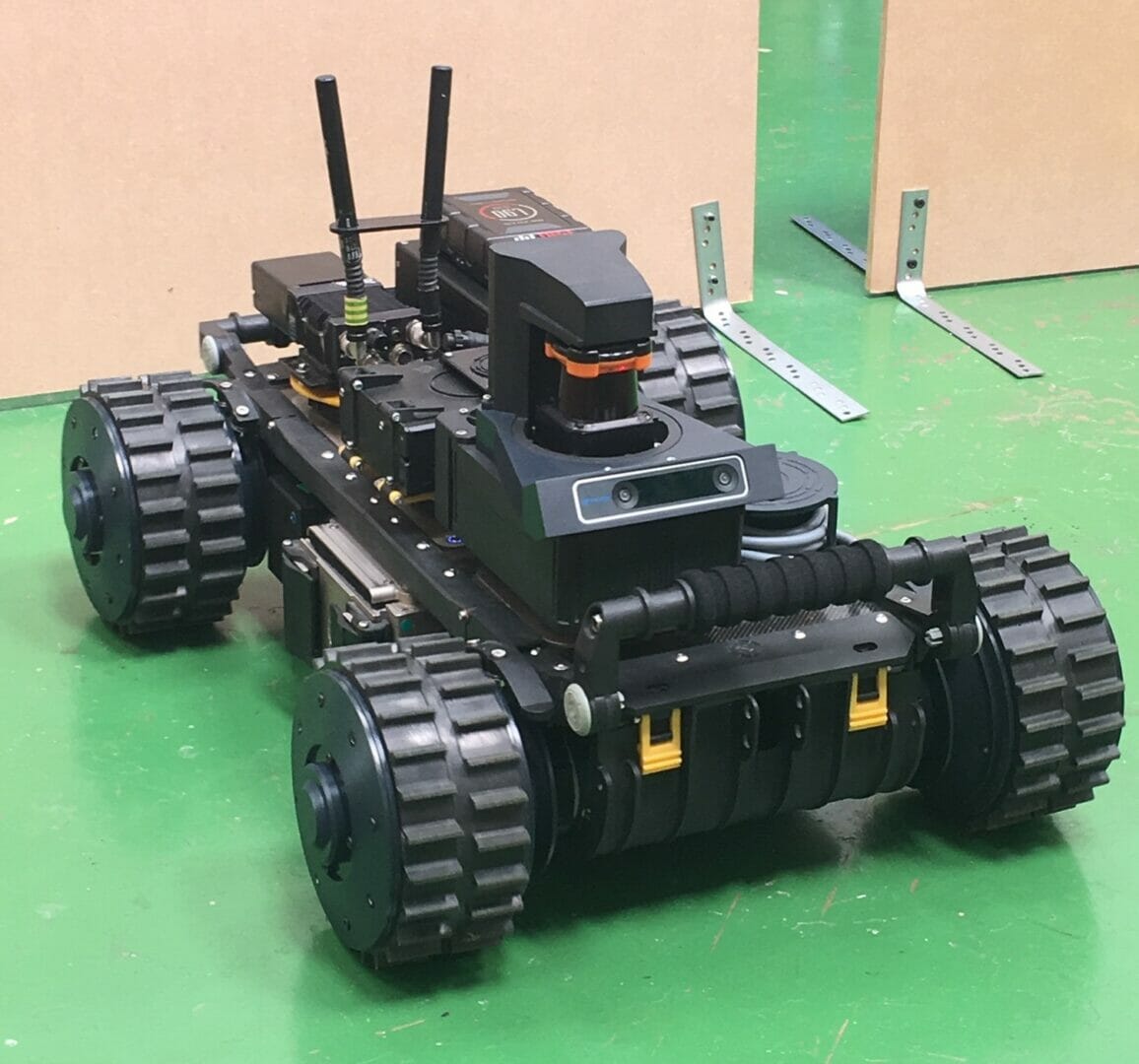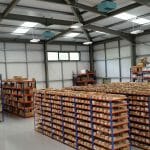We catch up with Philip Norman, from Ross Robotics, who has made his modular robots even more modular.
Ross Robotics specialises in remotely operated vehicles (ROVs) that are modular. The robots are designed to be made from generic parts to build robots small, medium and large. Tools and sensors are modular too and can be plugged on to suit the application. One robot can then perform different functions, which is highly unusual in the robotic world.
The latest modules offer greater flexibility than previously by using hub drives. Hub drives consist of motors and electronics inside a wheel case. These are stand-alone units, one of the advantages being that little maintenance is required. The speed and torque of the ROV can be changed quickly by swapping to a different hub drive. ‘The idea is to hide the complexity from the end-user to provide a range of performance options’ said Philip Norman, Research and Development Director of Ross, ‘If you want a police force robot to travel at 15 mph or a bomb disposal unit to travel at 1 mph, the hub drive will look the same from the outside but will be calibrated to perform to a specific task.’
Philip’s team are now using the maxon EC flat motor series with accompanying maxon gearboxes in each hub. Philip explained that initially they were using an alternative gearbox combined with a maxon motor. ‘We thought we needed a customised gearbox. This was expensive and we found they were prone to failure. We then tried an off-the-shelf maxon motor and maxon gearbox and it worked perfectly.’
The modular ROV’s have huge potential from mine inspection in South America to perimeter fence patrolling in Scandinavia. In agriculture, they can be used inside chicken farms. The robots are used to check the welfare of the birds. By using autonomous or remote-controlled navigation, onboard modular sensors can monitor the air quality, as well as the chicken distribution. Chicken aggression can be a big problem. Because robots are not imprinted as predators (unlike the human stockman) they can modify the behavior of the birds by interacting with them, like ‘super hens’, allowing smaller birds to get to the feeders and drinkers. This is hugely beneficial for the birds’ welfare and results in improved commercial outcomes for the farmer.
The nuclear industry is using robots to explore areas hostile to humans. The robots can endure rough terrain and deploy modular sensors, LIDARs, cameras and Geiger counters to determine the quality of the environment. When equipped with suitable tool modules they also perform useful decommissioning tasks.
Ross Robotics offers a range of hub motors, depending upon customer requirements. They promise quality and reliability. ‘Our biggest worry is failure. No-one wants a call at 2 am from a customer in Australia to say that your robot has failed, and it’s affecting business’, says Philip. ‘This is why we use maxon products. maxon has a great reputation globally, we only have to say that the Hub has maxon motors and gearboxes in it and customers are reassured. If we want to deliver a quality product, the quality of our suppliers is paramount.’







